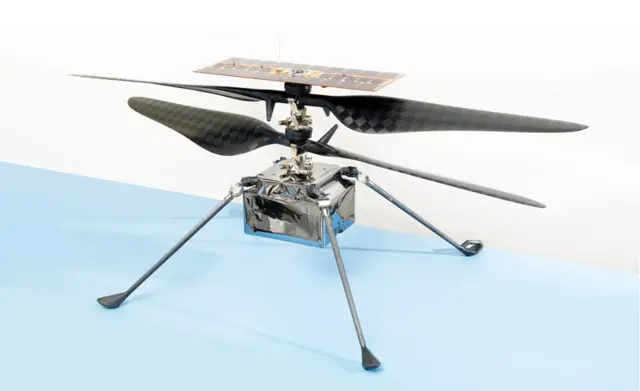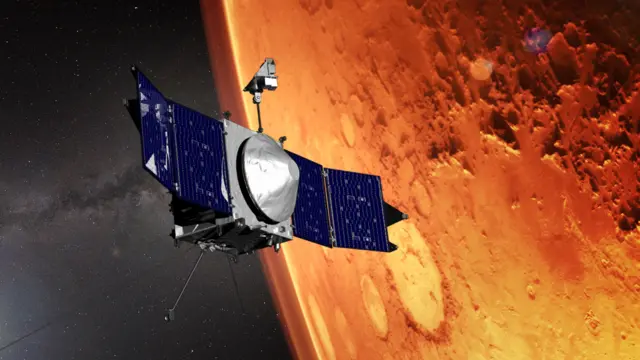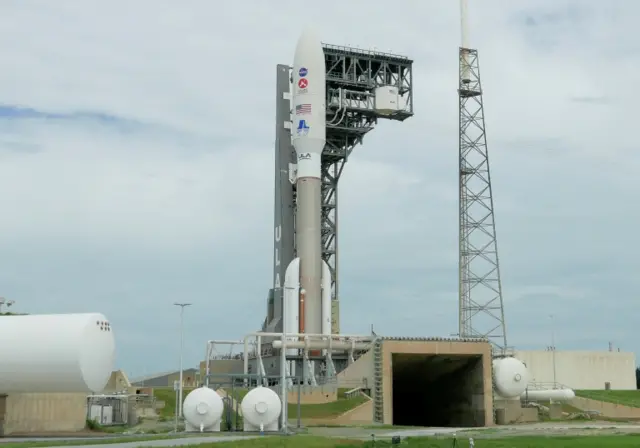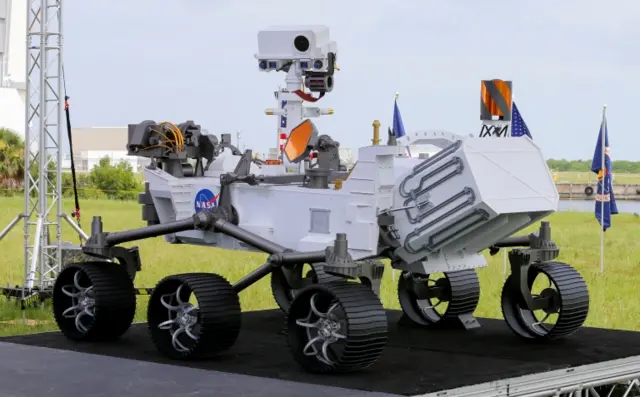What are the chances of life on Mars?published at 10:44 BST 30 July 2020
'Never say never,' Prof Caroline Smith of the Natural History Museum in London tells BBC Breakfast.
Allow X content?
This article contains content provided by X. We ask for your permission before anything is loaded, as they may be using cookies and other technologies. You may want to read X’s cookie policy, external and privacy policy, external before accepting. To view this content choose ‘accept and continue’.





